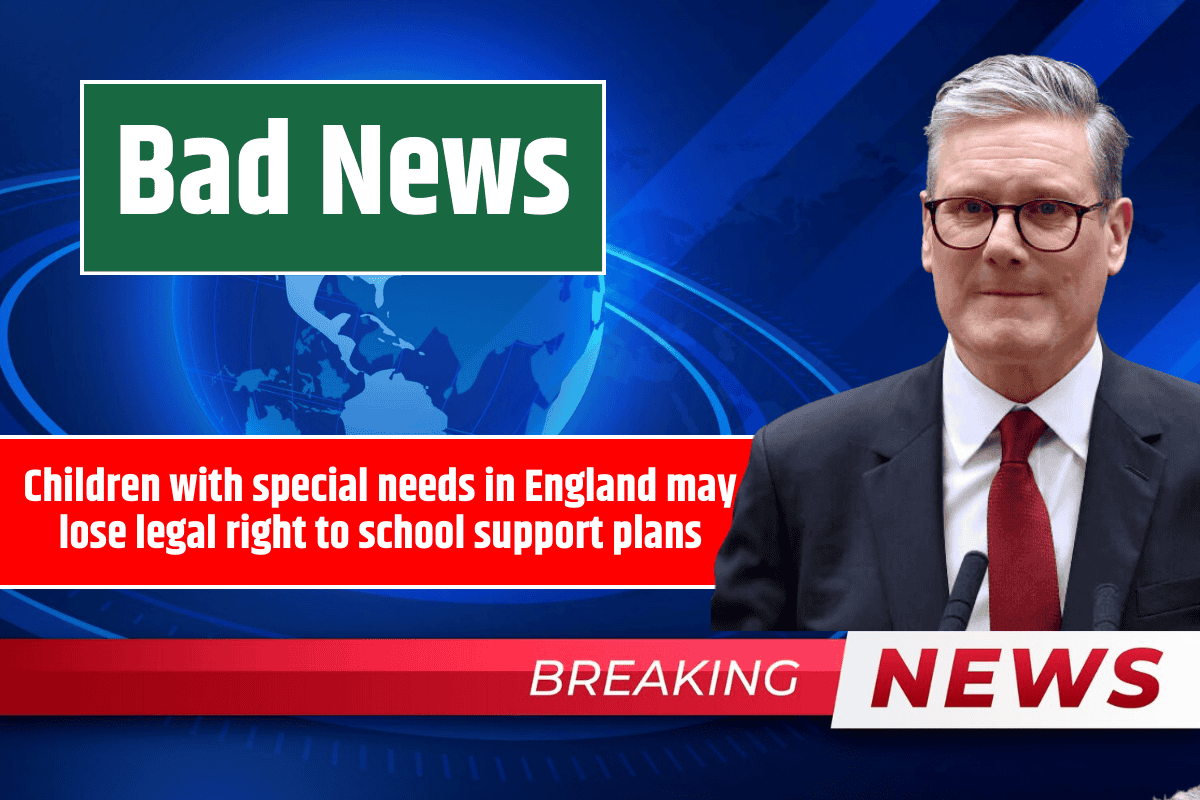The UK government is considering major changes to how children with special educational needs and disabilities (Send) get support in schools. At the heart of the debate is the possible removal or restriction of Education, Health and Care Plans (EHCPs) — documents that legally guarantee extra help for children with conditions like autism or learning difficulties.
These possible changes are worrying many parents and campaigners, who fear that if EHCPs are taken away or weakened, thousands of children may be pushed out of mainstream education and left without the help they need.
What Are EHCPs and Why Are They Important?
EHCPs are legal documents that clearly explain what support a child with special needs must receive at school. This support could include:
- One-to-one help in the classroom
- Speech and language therapy
- Specialist teaching techniques
- Special equipment or learning tools
Without an EHCP, schools are not legally required to give this kind of extra support. So for many families, it’s the only way to make sure their child gets the help they need to learn and thrive — especially in mainstream schools.
What Changes Are Being Discussed?
Catherine McKinnell, the Minister for School Standards, confirmed that the government is working on a new system for supporting Send children. She said the current EHCP system is not working well and is not delivering the right help early enough. But she did not confirm or deny whether EHCPs will be scrapped or reduced.
She explained that parents often face long waits, stressful legal battles, and delays even after getting an EHCP. “Parents have a real battle to get support that should be ordinarily available,” she said.
Instead, the government wants to focus on early support, with help starting at nursery or early school years, without needing a diagnosis or legal process.
Why Are Campaigners Worried?
Over 576,000 children in England have EHCPs. But getting one is not easy. Last year, only half of new plans were given on time, and many families waited over a year. Some parents even had to take legal action just to get their child assessed. In fact, over 21,000 parents went to tribunals, and 95% of them won.
Campaigners say this proves that the current system is failing, but removing EHCPs isn’t the answer — it would make things worse.
Katie Ghose, from the Disabled Children’s Partnership, said EHCPs are the only way many children can safely attend school. Removing them would be a huge change from how things have been done for decades.
What Is the Government Offering Instead?
The government is expanding its Early Language Support for Every Child (Elsec) programme. This project places speech and language experts in schools and nurseries to identify needs early, without needing a formal diagnosis. The scheme has helped over 20,000 children and will now run for another year to support even more.
Officials believe this kind of early help could reduce the need for EHCPs later on. But many parents say these efforts, while helpful, are not a replacement for the legal protection EHCPs provide.
Will This Affect All Children with Special Needs?
Yes — especially those in mainstream schools, early years education, and students aged 16 to 25. Special schools may still offer support, but if EHCPs are removed from general settings, many children could be left without access to education.
Tania Tirraoro, from the campaign group Special Needs Jungle, warned this is not just a reform — it’s a way to save money, and that vulnerable children will suffer most.
EHCPs have been a lifeline for families of children with special needs. While the government says the current system needs improvement, many worry that removing these legal plans will leave thousands of children without proper support. The focus on early help is promising, but without strong legal guarantees, parents fear their children could fall through the cracks. No final decision has been made yet, but families, charities, and education experts are urging the government to protect these essential rights.
FAQs
What is an EHCP in the UK education system?
An EHCP (Education, Health and Care Plan) is a legal document that outlines the support a child with special educational needs or disabilities should receive in school, including one-to-one help, therapies, or specialist equipment.
Is the UK government planning to remove EHCPs?
No final decision has been made yet, but officials are reviewing the EHCP system and considering changes. Campaigners worry that this could lead to fewer legal rights for children with SEND.
Why is the EHCP system under review?
The government says the current EHCP model is financially unsustainable and not delivering support early enough. They are exploring ways to offer help sooner, without legal processes.
What alternatives are being considered to EHCPs?
The government is expanding early support programmes like Elsec, which places speech and language experts in schools to help children before they need an EHCP.
How many children currently have EHCPs?
As of January 2024, more than 576,000 children and young people in England had an EHCP, but many face long delays and legal challenges to access them.
